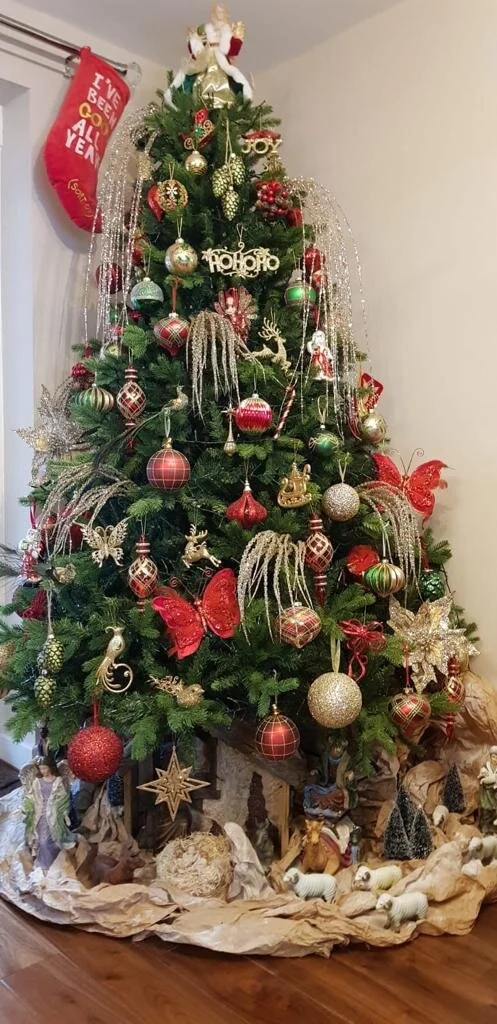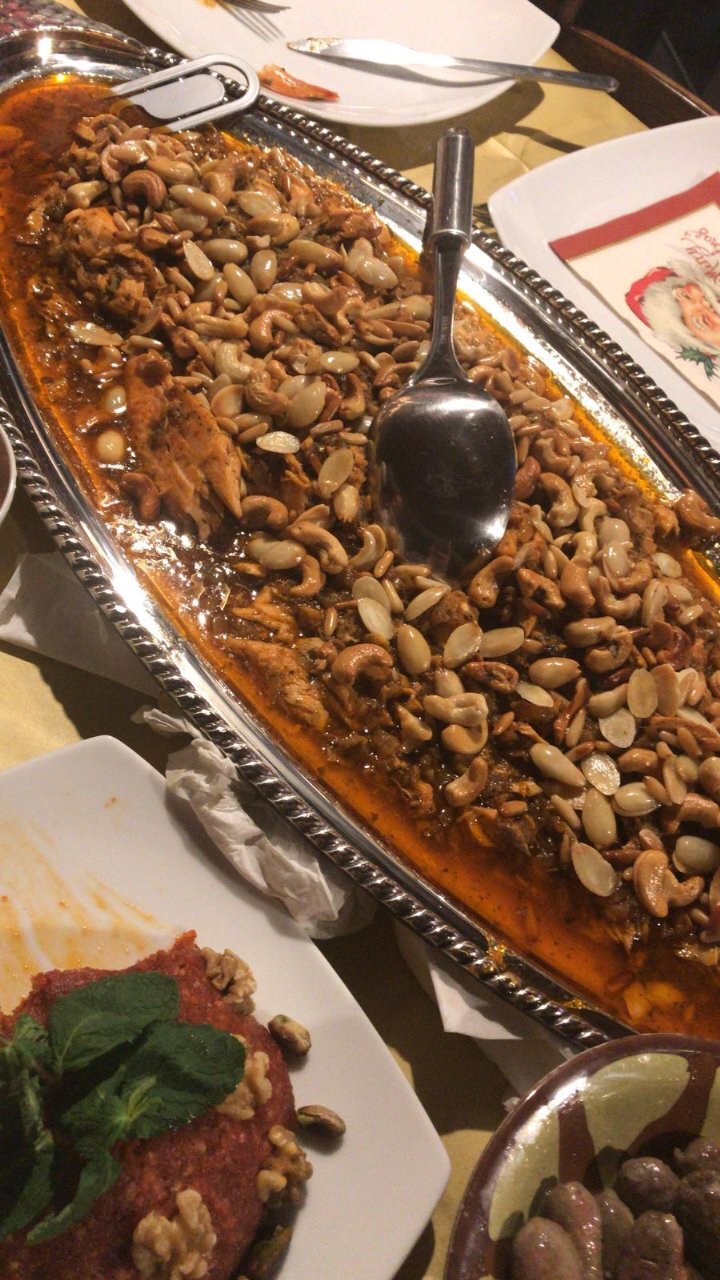A very Lebanese Christmas
The idea of Muslims enjoying Christmas is startling to most, but in Lebanon, Christians and Muslims look forward to festivities together - something my family has embraced here, too
Exclusive | 3 min read
The house is hotter than a Lebanese summer evening and smells of turkey and coriander. The tiny kitchen has three women in, all moving deftly around one another to prepare multiple dishes in a race against rumbling stomachs and kids impatient to open presents.
In the living room, men are connecting mismatched tables to accommodate all of us. I'm moving between the groups, glass of red wine in hand, checking that everyone has what they need and making sure Christmas songs play continuously on TV.
This is my family’s very Lebanese Christmas - something that people may be surprised even exists.
The idea of Muslims enjoying Christmas is startling to most, but in Lebanon, Christians and Muslims look forward to the festivities together with excitement.
The national holiday gives everyone a breather from work, with festivities everywhere to be enjoyed by everyone. Children of all faiths are given presents and taken to see Santa. Likewise, Christians enjoy national holidays for Eid and rush to patisseries for the sweets that are made especially.
Family culture
Like many second-generation Lebanese children, I grew up with a sharp line of separation between the ‘outside’ British part of me, and the ‘home’ Lebanese part. My ethnicity is not immediately obvious - I don’t wear a hijab and strangers rarely assume I’m Arabic.
If I’m ever asked where I am really from, questions then follow about whether I fast during Ramadan, why I eat pork or drink alcohol.
But not everyone who puts up a Christmas tree in the UK and has Christmas dinner identifies as Christian or religious at all, and yet, the act of participating is not questioned or seen as an activity that makes them ‘more’ Christian.
Even so, there are moments that I forget just how different the two parts of my heritage can be. I did not realise, for instance that our Christmas decorations are different to the ‘traditional’ ones in other UK homes until a friend once looked at ours with surprise and confusion.
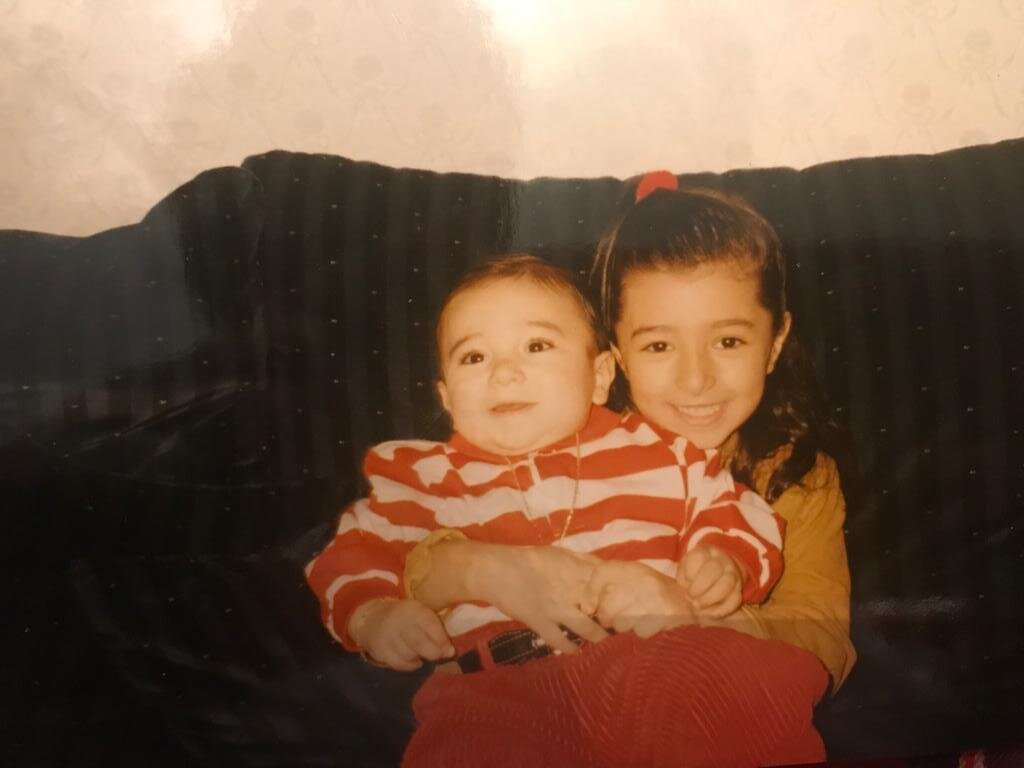
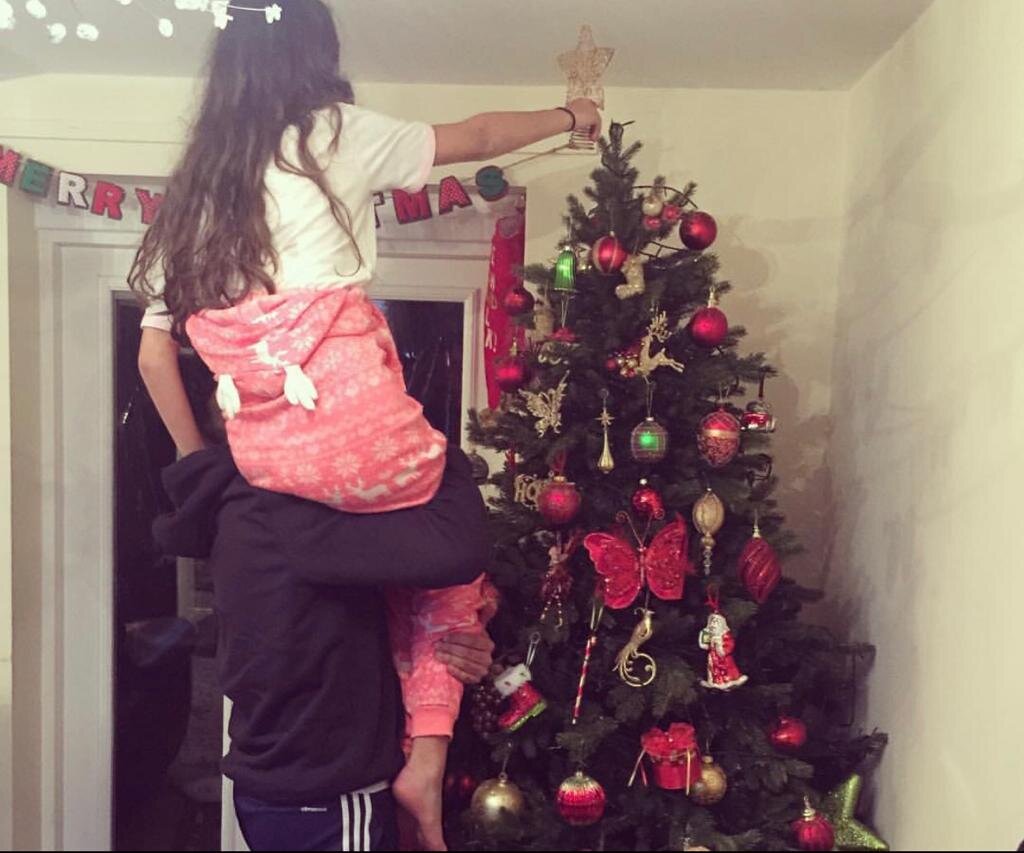
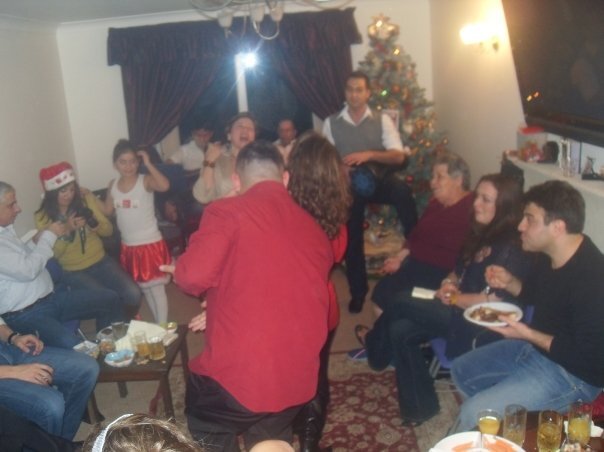
The nativity scene is important to Lebanese people and the figures of Mary, Jesus and Joseph are often displayed inside an elaborate grotto. My mother spends hours creating a brown paper stable, with shepherds, the three wise men and animals.
I hadn’t made the connection that this was in any way unusual and the reaction to our nativity grotto from my British schoolfriend was the exact reaction that I’d been so afraid of as a child. I’m ashamed to say now that I was embarrassed of our display.
Differences
The fear of being labelled as different or weird was the same reason I used to hide my hummus and pitta bread at school and refused to speak Arabic when anyone outside of my family could hear. I didn't even like it when my parents spoke their mother tongue loudly on the phone in public because it drew attention to us.
But as I get older, I am proud of my roots and want to share them with the world, including how Christmas is a big part of my Lebanese culture. Our Christmases are a little bit different and gorgeously so.
The main meal happens over a table set for dinner on Christmas eve, distracting children from the presents sitting under the tree that’ll be opened at midnight.
As my two siblings, cousins and I were raised in the UK, some British traditions have also seeped in and become part of our annual festivities. We once mentioned we should try having a turkey and the trimmings for a change and my mum simply added it to the existing Lebanese dishes that are showcased every year.
Each stage of the meal, first the starters then the mains are both Lebanese and British, with the dessert - traditionally a French Bûche de Noël (yule log) requiring days of work in advance and hours on the day.
Mixed cuisines
The starters are not especially festive but the Christmassy-ness is in the quantity. Coriander and garlic marinated king prawns sit next to the variety of soft doughy pastries stuffed with either lemony spinach, sumac and onion or minced meat, spices and pine nuts. There’s homemade hummus with ground chickpeas that have been soaked overnight then blended with garlic, tahini and a squeeze of lemon. Batata harra (spicy Lebanese potatoes), moutabal (a garlicky aubergine dish also known as baba ganoush), and stuffed vine leaves are all laid out multiple times so there’s enough at each section of the table for everyone to reach easily.
This part of the meal doesn’t include any British dishes, though I personally love a smoked salmon and dill canapé or a cocktail sausage.
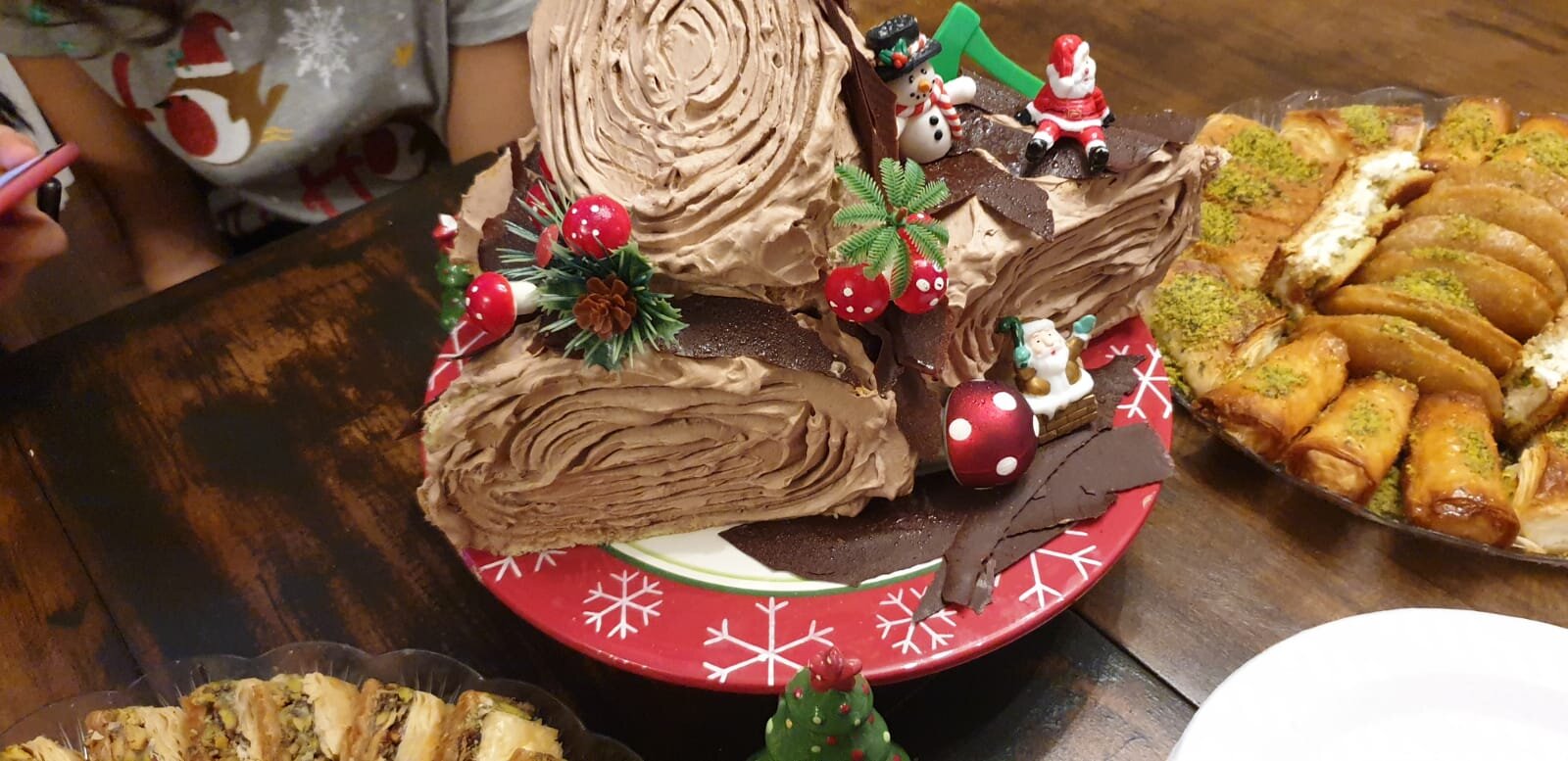
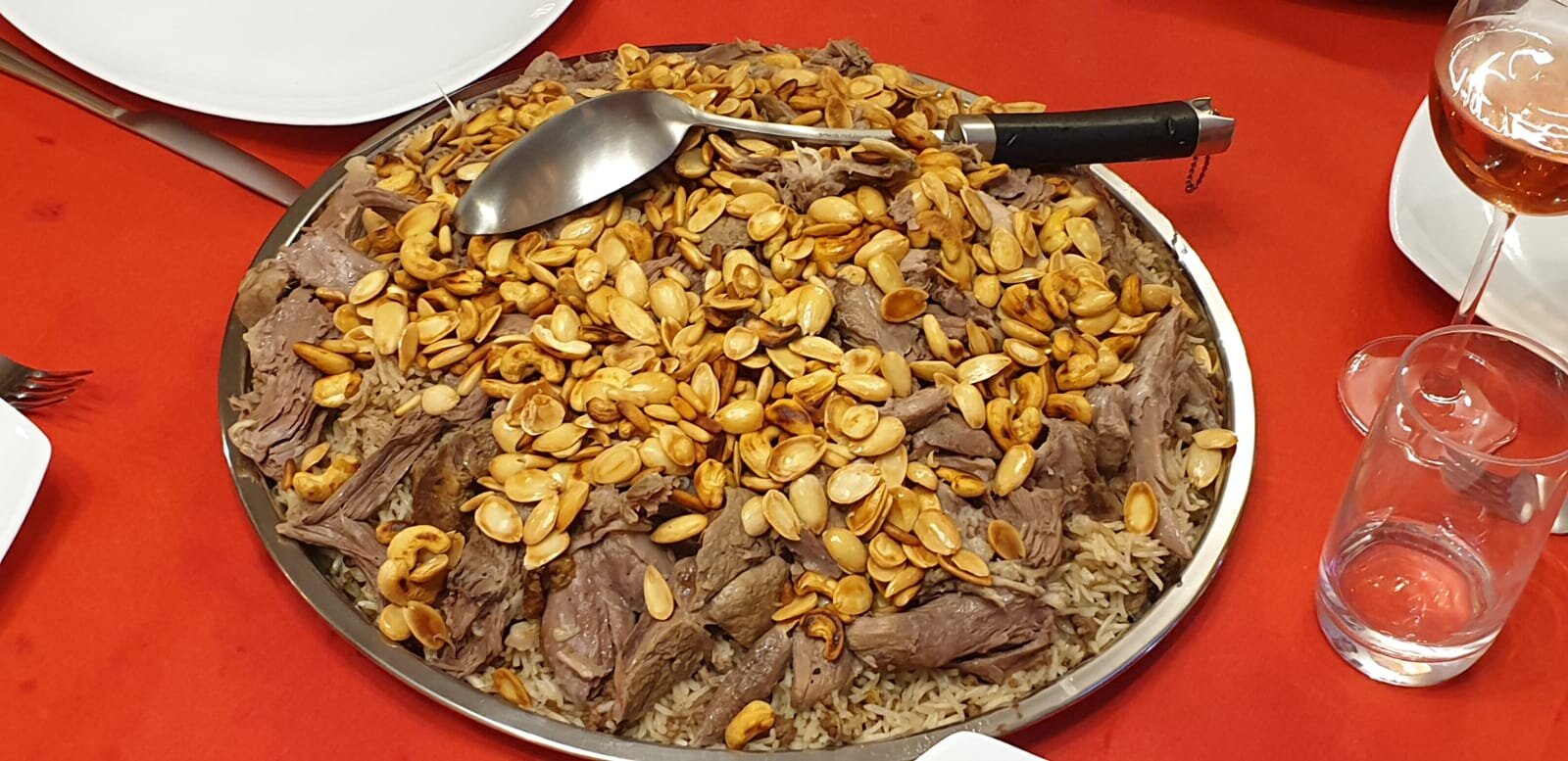
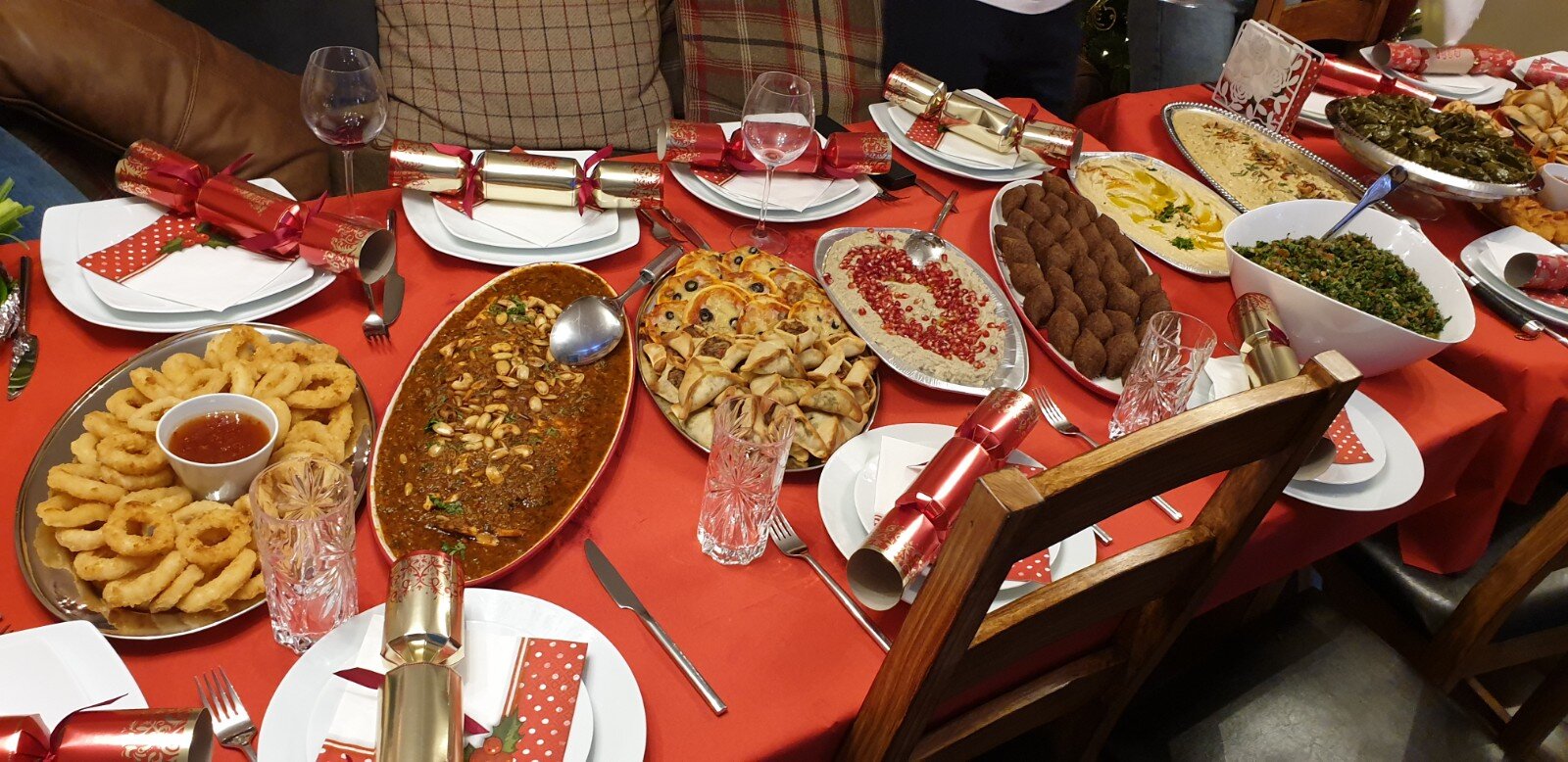
My mum is usually up at 6:00am preparing the three Christmas mains, complete with accompanying side dishes for each. First, Samke Harra: a large fish marinated and served with a spicy, red pepper sauce. Next, a leg of lamb cooked to falling-off-the-bone perfection served on a bed of fluffy rice with minced-meat, topped with an array of roasted nuts. This takes centre stage right next to main number three: the gloriously slow-cooked turkey. The British and Lebanese cuisines collide with shared jugs of homemade gravy.
Blended traditions
There are other little traditions in our house too. Christmas in a Lebanese home is usually when kids try their first taste of beer or wine at six or seven. Adults enjoy red and rosé wine, whisky and araq - a spirit made from anise and mixed with water - similar to Turkish raki or Greek ouzo.
We used to dress up for our Christmas bashes but later adopted the Christmas jumper tradition, a beautifully comfortable British inclusion.
Usually, my uncle, his wife and two small children join us, along with two of my cousins, whose parents have moved back to Lebanon. The whole gang stays until Boxing Day in a melee of love, laughter and food.
Missing this saddens me more than anything else this Christmas. Of course, it pales in significance to the immense suffering and losses endured by many in 2020, but hurts nonetheless.
As the world continues to face Covid-19 into the festive season, with 16 million Brits in tier 4, we’re all experiencing Christmas differently.
If this year has taught me anything however, it is how much I took the small pleasures in life for granted - being able to meet with friends, job security, the freedom to go out whenever and wherever we wanted. To hug each other and go to each other’s homes.
Christmas for me has always been something to look forward to, a time for different dishes, my family, our blended traditions and cobbled together tables. A time for Christmas crackers to be pulled apart and for jokes to be shared in paper crowns and a warm, contented haze.
This year will undoubtedly be different for all of us but there is some comfort in knowing a vaccine is here and some sense of normality will return - at some point.
Christmas in 2020
My family won’t be mixing households this year, instead holding a smaller Christmas amongst ourselves and reflecting on how lucky we are to all still be here, safe and sound. We will raise a toast to everyone missing from our table and think of the families mourning this year.
As much as I wish things could go back to normal, I am hopeful that this prolonged, enforced pause on our lives will give way to a better world going forward. A slower, less wasteful and more grateful world.
Like this article? Please help us commission more like it by donating the cost of a cuppa on Ko-fi. Sharing this article on your social media, and following us on Instagram, Facebook, and Twitter are also a great way to support our independent, self-funded platform.
We encourage debate, but trolls are not welcome. Please read our comments policy before contributing.

